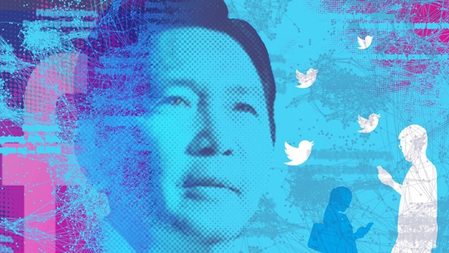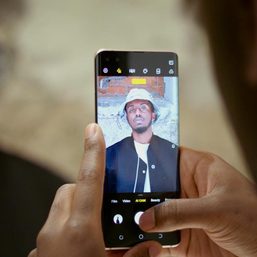SUMMARY
This is AI generated summarization, which may have errors. For context, always refer to the full article.
![[ANALYSIS] Viber: The next frontier for political propaganda in the Philippines?](https://www.rappler.com/tachyon/2021/12/tl-viber-youth-propaganda-tool.jpg)
As is well-known, Facebook is widely used across Southeast Asia, especially in the Philippines, where 99% of internet users have Facebook accounts and 98% use Facebook Messenger, mostly to communicate with family and friends. In comparison, the use of the messaging app Viber is very low – only 5% of internet users use it. However, Viber use is rapidly growing in the Philippines and with it, its political significance grows, too. The Propaganda Lab at the Center for Media Engagement at UT Austin conducted 21 interviews in the Philippines, Indonesia, Myanmar, and Ukraine, and found that Viber is being used for the spread of political propaganda in the Philippines in particular. While Facebook remains widely used for propaganda in Indonesia, for instance, our interviewees in the Philippines articulated that Viber has been “invaded” by Duterte’s government. So, will Viber be the next hotbed of disinformation or misinformation exploited by an authoritarian leader?
Disinformation and political propaganda are rampant on Facebook across Southeast Asia but similar phenomena on encrypted messaging applications (EMAs) are underexplored. Apps that use end-to-end encryption (E2E), which tout that only the sender and receiver can see what messages say, are growingly popular across the globe. Troublingly, they are increasingly becoming spaces for mis- and disinformation just like “traditional” social media. They have even led violence to erupt in the offline world, such as mob lynchings in India after disinformation spread on WhatsApp, and played a role in anti-democratic movements, such as the Capitol riot in the United States. The emerging use of Viber, an app that offers E2E in 1-on-1 and group chats (though not in channels or communities), looks like the next frontier for political propaganda and disinformation in the Philippines and Southeast Asia writ large.
For instance, representatives from the Presidential Communications Operations Office interviewed by us explained that the government established Viber groups that include over two million users to distribute information from the government to Filipinos. In addition to government announcements, these groups serve as an avenue to encourage support for President Duterte on a platform that is sure to reach a widespread audience. According to two representatives from the communications office, their goal is to make the president visible – even “ubiquitous.” They aim to make content as entertaining as possible, tailored specifically to younger audiences. One example is sticker campaigns. Graphic designers in the communications department have designed sticker packs with President Duterte’s image paired with politically motivated phrases – people in his office would call this increasing support, but a cybersecurity strategist we spoke to (who is also a former politician), called these “Duterte ads.” He considered these strategies to be more than just spreading presidential news – he explicitly called it “propaganda.”
In addition to calculated strategies like sticker packs, government officials thoughtfully select which platforms to engage on as well. “We use Facebook Messenger to blast information to the public.” Although they “try to blast it on all platforms,” they particularly aim to target young folks (millennials and younger) through emerging platforms like TikTok and Viber. This is strategic – the number of TikTok users in the Philippines is increasing, just like Viber. “Filipinos want to go to social media as an escape,” one of the officials told us, “so you must package your content in the most entertaining and trendiest way possible to relate, especially to the millennials.” Their strategies are deliberately coordinated in order to reach the most emerging users.
The representatives we spoke to were adamant that such content was not pushed by trolls. “For us, social media is just an additional task of our public information officers.” In fact, a main part of their job description includes content creation and social media management. The creation of in-house social media teams signals how vital social media has become for the Duterte regime. “We don’t hire external outfits or groups to run our social media,” they told us. However, while the people we spoke with who work in Duterte’s communications office would (and did) vehemently deny the use of troll farms, it has been exposed in investigative reporting and academic work alike.
The use of Viber differs greatly across different cultures and countries. In Myanmar, for instance, it’s not widely used, and in Indonesia WhatsApp reigns. In general, EMAs are often used to connect individuals into small groups from families to community social groups; with the unintended side effect, however that – “lots of disinformation spreads between family and friends,” as a cybersecurity strategist told us.
Hence the additional question arises if Viber will not only be the next outlet for disinformation in the Philippines but also co-opted by troll farms. One man we spoke to in Indonesia (we would refer to him as a troll, but they call themselves “buzzers”) told us about his strategies for political propaganda on traditional social media like Facebook and YouTube: he and his team each run 50 or more accounts, orchestrating fake arguments between the accounts about political candidates. Ultimately, all of the “people” (fake accounts) concede and support the candidate the buzzer/troll was hired to increase support for. This strategy, he told us, is not possible on EMAs. However, he and other interviewees explained that by pushing out positive information about one candidate and negative disinformation about the other, they can still affect public opinion and likely, elections.
Ultimately our research has discovered that EMAs are falling prey to exploitation just as other social media sites have. However, there is another side to this challenge, namely the receptiveness and potential engagements of EMA users to disinformation and propaganda. In the Philippines in particular, citizens have been trying to push back against an authoritarian leader – so while online spaces such as Viber and TikTok present opportunities for state actors to manipulate young folks, who are allegedly especially at risk for believing fake news, this research also wants to highlight the opportunities for pushback. For example, EMAs are useful to communicate in private and mock government propaganda or engage in fact-checking to expose government propaganda. For this, researchers must keep a finger on the pulse of disinformation campaigns on emerging platforms since actors, such as the Filipino government, adapt to the ever-changing social media trends for their own goals. – Rappler.com
Katlyn Glover is a researcher and graduate student at the Propaganda Lab at the Center for Media Engagement at the University of Texas at Austin, where she researches disinformation and political propaganda on emerging technologies.
Zelly Martin Geurink is a researcher and PhD student at the Propaganda Lab at the Center for Media Engagement at the University of Texas at Austin, where she researches disinformation and political propaganda, especially as they pertain to women.
Add a comment
How does this make you feel?



![[DECODED] The Philippines and Brazil have a lot in common. Online toxicity is one.](https://www.rappler.com/tachyon/2024/07/misogyny-tech-carousel-revised-decoded-july-2024.jpg?resize=257%2C257&crop_strategy=attention)



![[Rappler’s Best] US does propaganda? Of course.](https://www.rappler.com/tachyon/2024/06/US-does-propaganda-Of-course-june-17-2024.jpg?resize=257%2C257&crop=236px%2C0px%2C720px%2C720px)




![[OPINYON] Tungkol sa naging viral na social media conjecture](https://www.rappler.com/tachyon/2024/07/thought-leaders-conjecture-07262024.jpg?resize=257%2C257&crop_strategy=attention)



There are no comments yet. Add your comment to start the conversation.